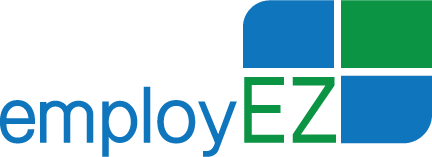
by Kaerrie Hall | Apr 18, 2024 | Benefits of a PEO, Human Resources
There’s nothing more exciting than venturing out on your own, creating a business, and watching it grow. Soon, you’re attracting more customers to what you have to offer, and looking for more talent to help you deliver it. That’s great. But the bigger your company gets, the more you spend time managing it. That’s not a model for success. Here’s what is: Outsourcing HR-related services like HR administration, payroll processing, workers’ compensation, and employee benefits to a Professional Employer Organization (PEO).
Success with HR Outsourcing
That’s where we come in. The employEZ family of PEOs provides HR solutions and services that fit your business size and needs. Count on us to:
- Manage payroll processing and payroll tax reporting
- Provide claims management
- Stabilize your workers’ compensation costs
- Eliminate time-consuming HR administrative tasks
- Assist you with compliance in labor laws, OSHA, and other regulations
- Provide access to funding sources for your payroll
- Help you attract and retain top talent with comprehensive employee benefit packages, including healthcare insurance, dental, vision, and 401(k)
You’ll benefit from the relationships we’ve made with top companies, our purchasing power and our collective expertise.
Get Our Free Guide to HR Outsourcing
Want to know more about HR outsourcing through a PEO and the types of services they provide? Curious how companies like yours can benefit from having a co-employment relationship with a trusted PEO from the employEZ family of PEOs? Contact us today and request your free copy of our guide to HR outsourcing for small business success here: info.employ-ez.com/hr4smb.

by Kaerrie Hall | Feb 12, 2024 | Benefits of a PEO, Employee Benefits
A healthy workforce is a productive workforce. By offering health insurance to employees, businesses contribute to overall employee well-being, providing employees easier ways to take better care of themselves and their families and fostering early detection and treatment of illnesses. This proactive approach not only reduces absenteeism but also amplifies productivity, forming a symbiotic relationship between company and employee. Beyond the obvious value offering health insurance brings to employees, there are many ways offering health insurance is good for business.
Providing Employee Benefits Helps Companies Attract and Retain Talent
Establishing yourself as an employer that offers comprehensive employee benefits can create a competitive advantage, helping you not only attract great candidates, but avoid losing the talent and experience you already have on your team. With so many job candidates looking for more than a good salary, exploring your options for providing healthcare and ultimately lowering your turnover rates makes good business sense. Offering employee benefits can be easier and more cost-effective than you think when you work with a Professional Employer Organization (PEO). A PEO can leverage its size and purchasing power to negotiate far better rates for health benefits, workers’ compensation and more, and pass those savings on to you.
Good Health Can Boost Employee Productivity, Morale and Engagement
Caring for employees goes beyond a paycheck; it extends to their well-being. Offering health insurance helps alleviate the financial burden of medical expenses for your employees. Additionally, many health plans include support services to address mental health issues as well as programs that are proactive in encouraging preventive care and healthier living. This can help create a more positive work environment that significantly impacts company culture, morale, and overall performance.
Tax Advantages Create a Win-Win Scenario
Often overlooked, the tax advantage of offering health insurance under a cafeteria plan is a win-win scenario. Health insurance premiums, deducted pretax, reduce taxable income for both employees and employers. This strategic leverage helps everyone manage costs more effectively.
Offering Health Insurance Helps Larger Companies Comply with the ACA
For larger companies – generally those with 50 or more full-time equivalent employees – offering health insurance is essential for complying with the Affordable Care Act (ACA). The insurance offered must meet ACA standards and non-compliance can result in penalties. But it’s important to note that you do not have to be a large employer to offer health insurance to your employees. Increasingly, smaller companies are finding tremendous value in providing employee benefits and more opportunities to do so affordably thanks to the help of a PEO.
Ask Us About Employee Benefits
The experts at employEZ believe strongly that smaller companies and their employees deserve the benefits of larger corporations. Let us identify the right PEO and Fortune 500-level benefits for your needs. Our PEOs have already navigated the complexities of evaluating healthcare options and created partnerships that give you plenty of choice and value. Additionally, our HR specialists can help you administer employee benefits so you don’t have to keep up with regulations or handle the ins and outs of providing healthcare. Reach out here to learn more.


by Kaerrie Hall | Dec 15, 2023 | Benefits of a PEO
Every business faces some form of risk. There are internal risks like workplace injuries, employee fraud, equipment malfunctions or unexpected delays in production. There are external risks like environmental issues, regulatory changes and new competition entering the market. Risk can also come from both positive and negative sources. For example, expanding into new markets, adding services or acquiring another company can be positive, but each opportunity can add potential risk.
Preparation is the Best Defense
The good news is, business owners can make risk management a priority without compromising their time and focus on core competencies. To do this, they can turn to the expertise and risk management services of a Professional Employer Organization (PEO). Leveraging a PEO’s knowledge of risk assessment and risk mitigation, they can better identify and avoid risk. They can also effectively foster a workplace culture that champions transparency, trust and safety.
Comprehensive Risk Management Services
By providing access to a wide range of risk and safety management services, a PEO can:
- Provide customized safety and training programs for employees
- Identify gaps in safety measures to better protect the company’s resources
- Design risk management strategies suited to the company’s size and industry
- Implement protocols to make risk management seamless and efficient
- Help companies navigate industry-specific challenges and regulatory landscapes
- Safeguard the business from potential pitfalls, both expected and unexpected
- Keep businesses on the right side of legal and regulatory frameworks
- Reduce the likelihood of costly fines and legal disputes
What Should You Expect from Your PEO?
To get the most value from risk management services, business owners should look for a PEO that supports all of the above plus offers:
- A dedicated professional safety manager
- Development of professional safety manuals and handbooks
- Professional code audits for accuracy and compliance
- One-on-one consulting to improve the company’s risk and safety programs
Guidance in risk management and support from a PEO can be invaluable. Don’t go it alone. To learn more about services from the employEZ family of PEOs, please click here. You can also use the contact form here to reach out with any questions and an employEZ consultant will be happy to respond.

by Antonia Valenzuela | Nov 15, 2023 | Benefits of a PEO, Workers' Compensation
Are you looking to supercharge your workers’ compensation program? Discover the benefits of partnering with a Professional Employer Organization (PEO) for workers’ compensation – enhancing your program’s efficiency, saving costs, and ensuring compliance. Working with a PEO is a powerful way for businesses to optimize their workers’ compensation benefits, as this article explains.
Expert Support and Resources
Tap into the expertise of PEO professionals who possess deep knowledge of workers’ compensation regulations and best practices. Their guidance helps ensure compliance with state-specific laws, precise documentation, and effective claims management. With expert support and resources at your disposal, you can navigate the complexities of workers’ compensation confidently and efficiently.
Enhanced Risk Management
Mitigate risks and create a safer work environment with a PEO’s comprehensive risk management strategies, in line with Occupational Safety and Health Administration (OSHA) guidelines. PEOs offer tailored safety training programs, conduct inspections, and provide guidance on minimizing workplace injuries. By proactively addressing risk factors, you reduce the likelihood of accidents, leading to lower workers’ compensation premiums and improved profitability.
Efficient Claims Management
Managing workers’ compensation claims can be complex and time-consuming. PEOs streamline the claims management process, handling reporting, documentation, and communication with insurance carriers. Their expertise ensures timely resolution and support for injured employees throughout their recovery journey, minimizing disruption to your business operations.
Assured Compliance
Navigating workers’ compensation regulations is challenging, but a PEO takes that burden off your shoulders. They handle paperwork, manage audits, and maintain accurate records, ensuring compliance with all legal requirements. By partnering with a PEO, you can focus on your business, knowing that compliance is assured.
Cost Savings and Optimization
One of the most significant benefits of PEOs is cost savings. Not only are they able to leverage their purchasing power to negotiate favorable insurance rates, but they also implement risk management initiatives and streamline claims processes. By reducing claim frequency and risk, controlling costs, and optimizing your workers’ compensation program, a PEO helps you allocate resources more effectively, thus maximizing profitability.
Drive Business Success Through a PEO Partnership
Unlock the true potential of workers’ compensation benefits by partnering with the employEZ family of PEOs. Contact us today for a personalized consultation. Especially when you’re approaching workers’ compensation renewal time, make sure you are getting the best coverage at the best price. Through streamlined benefits administration, expert support, enhanced risk management, and efficient claims management, a PEO takes the work out of workers’ compensation, while you reap the benefits of compliance and cost savings.
You may also be interested in: Identifying Red Flags for Workers’ Compensation Fraud.


by Antonia Valenzuela | Sep 26, 2023 | Benefits of a PEO
Running a small business comes with challenges in HR and employment regulations. A Professional Employer Organization (PEO) can be a game-changer for small businesses. In this article, we’ll explore what a PEO is and the significant advantages they offer to small businesses using PEOs for small businesses.
What is a PEO?
A PEO is an outsourced HR service provider that partners with small businesses to handle various aspects of HR management. By entering into a co-employment relationship, the PEO becomes the employer of record for certain employment purposes, while you, as the business owner, retain control over day-to-day operations and business decisions. This unique arrangement allows you to tap into the expertise of HR professionals, benefit from their comprehensive HR services and more.
Advantages of PEOs for Small Businesses
Streamlined Operations
A PEO takes care of critical HR functions such as payroll processing, benefits administration, and compliance management. By offloading these tasks to experts, you can focus more on core business activities and strategic initiatives, leading to increased productivity and efficiency.
Expert HR Guidance
PEOs have a team of HR professionals who stay updated on the latest employment laws and regulations. They provide valuable guidance on HR best practices, employee relations, performance management, and more. With access to their expertise, your business can stay compliant and minimize the risk of legal issues.
Cost Savings
By partnering with a PEO, small businesses can leverage economies of scale. PEOs have established relationships with insurance providers and can negotiate better rates for employee benefits and workers’ compensation. Additionally, PEOs can help lower administrative costs associated with HR functions, such as payroll processing and employee onboarding.
Access to Comprehensive Benefits
Offering competitive employee benefits can be a challenge for small businesses. PEOs provide access to a wide range of benefits, including health insurance, retirement plans, and other voluntary benefits. These comprehensive benefit offerings can help attract and retain top talent, giving your business a competitive edge.
Reduced Compliance Risks
Staying compliant with employment laws and regulations can be a daunting task. PEOs handle payroll tax filings, workers’ compensation insurance, and other compliance-related tasks. Their expertise ensures accurate reporting, timely filings, and adherence to legal requirements, reducing your exposure to compliance risks.
Partnering with a PEO can be a game-changer for small businesses looking to streamline operations, minimize HR burdens, and achieve growth. The advantages of a PEO include streamlined operations, access to expert HR guidance, cost savings, comprehensive benefits, and reduced compliance risks. By outsourcing HR functions to a trusted PEO, you can focus on what you do best: growing your business and maximizing sales.
Unlock Your Company’s Potential
So, why struggle with HR management on your own when you can leverage the advantages of a PEO? Take the first step toward unlocking your company’s potential through HR outsourcing by considering a partnership with a reputable PEO. Your business will thrive, and with the help of employEZ, you’ll have more time to focus on what matters most: driving sales and achieving success.

by Antonia Valenzuela | Sep 13, 2023 | Benefits of a PEO, Payroll
Understanding your federal tax obligations as a new employer is crucial to ensure compliance with tax laws and avoid potential penalties. Navigating the complex landscape of employer tax forms and filing requirements may seem overwhelming, but with the right knowledge, you can fulfill your responsibilities with ease. In this article, we will guide you through the key forms and filing requirements for federal taxes, providing essential information to help you navigate your tax obligations as a new employer.
1. Obtaining an Employer Identification Number (EIN)
Before you dive into tax forms and filing requirements, you must obtain an Employer Identification Number (EIN). The Internal Revenue Service (IRS) assigns an EIN, a unique nine-digit number, to identify your business for tax purposes. You can apply for an EIN by completing Form SS-4 online via the IRS website or by mail or fax.
2. Employee Tax Forms
Next, employees need to complete Form W-4 to indicate their federal income tax withholding. When starting employment, new employees should provide information on their filing status, dependents, and any additional withholding amounts, if applicable. Accurately completing this form is crucial for determining the correct amount of federal income tax to withhold from their wages.
3. Employer Tax Forms and Filing Requirements
Form 941, also known as the Employer’s Quarterly Federal Tax Return, is used to report income taxes, Social Security tax, and Medicare tax withheld from employees’ wages, along with the employer’s portion of Social Security and Medicare taxes. It is filed quarterly, summarizing wages paid, taxes withheld, and any adjustments or credits.
Form 940, the Employer’s Annual Federal Unemployment (FUTA) Tax Return, reports and pays federal unemployment tax, which funds unemployment benefits for workers who have lost their jobs. This form is filed annually, providing information on wages subject to unemployment tax and any credits or adjustments.
Form 1099 is not specific to employee taxes, but is essential for reporting payments made to independent contractors or freelancers. If you hire individuals as independent contractors, you may need to file Form 1099-MISC or other specific variations to report their income. Understanding and adhering to the criteria for classifying workers as employees or independent contractors ensures compliance.
4. Tax Deposits and Deadlines
Finally, as an employer, you must make timely tax deposits as one of your federal tax obligations. The deposit schedule depends on the size of your payroll and is determined by the IRS. Complying with these deposits is crucial; moreover, reviewing the deposit schedule requirements helps ensure compliance.
The tax filing deadlines for the various forms are as follows:
- Form 941 deadline is due quarterly, by the last day of the month following the quarter’s end (April 30, July 31, October 31, and January 31).
- Form 940 deadline is due annually, by January 31, for the previous calendar year.
- Form 1099 deadline is due annually, by January 31, for the previous calendar year.
Employers can seek assistance from payroll providers or Professional Employer Organizations to comply with federal tax obligations. These providers offer comprehensive payroll solutions that streamline tax calculations, withholdings, and reporting processes, ensuring compliance with federal tax requirements.
Need help with federal tax forms and filing requirements? Simplify the process with employEZ. Visit our payroll administration page to learn more and contact us about ensuring your business stays compliant.
You also might be interested in: How a PEO Can Support Your Business in Managing Taxes










